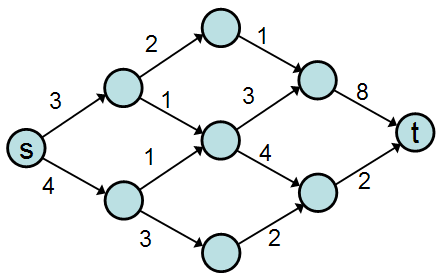This week’s Lifestream feels like a multi-stepped journey, without a panoptic view of beginning and end. In part, this reflects the Tweetorial’s velocity and scale, in part it reflects the topics in view.

To pick out some themes:
(a) Education and learning analytics have to both inform each other: there is a two-way relationship between them – neither is a ‘thing in itself’;
(b) Learning analytics do not escape the influence of context. Thus, learning analytics need to be understood relationally and in a context-critical way – this requires both localised particularity and also an eye towards globalisation;
(c) statistics don’t bleed, but learners still do – there are ethical entanglements with learning analytics which are inescapable;
(d) learning analytics are emblematic of wider algorithmic cultures, and need to be – and will be – understood within that wider cultural matrix;
(e) instant answers such as ‘learning to code’ are perhaps more instant than answers – and will generate new issues, new questions. At very least, coding needs to go hand in hand with social theorising, even if the money follows the former not the latter. Particularly if the money follows the former, not the latter.
(f) as the final post for the week suggests, I’m surprised to think that learning analytics might even humanise learning, in some situations – but then i think this unexpected ‘turn’ reflects the breadth of possible contexts and entanglements. A particular assemblage can surprise, and be unexpected.
(g) this block of the course is by far the least stable in my thinking and experience – befitting its emergent qualities, but also its ‘big’ scale.


Hello Matthew, it’s really interesting to see how you’ve pulled the different thoughts from this week together in this summary.
I’m going to comment on some of the ideas in your lifestream blog before returning to the ideas in your weekly summary.
First of all, thanks for your excellent input to last week’s Tweetorial: your contribution was always thoughtful, always pushing the discussion forward. Something I didn’t anticipate – but worked extremely well – was how you were able to make effective use of your contribution to the tutorial through the addition of metadata underneath each of your entries. I think it offers a really effective commentary, going into more detail and depth than is possible within 140 characters of a single Tweet.
On the subject of the whether we over-rate the single author assignment, what I think is interesting is whether the effects of algorithm and code within digital contexts begin to unsettle how we tend to view an assignment predominantly as the work of the student? Thinking back to some of the examples of richly digital work we’ve seen on the EDC course, to what extent has this work depended on the sophisticated code and calculations beyond the student’s gaze, understanding or control? Therefore when it comes to assessment, how we do go about evaluating a student’s ability when the work is a co-authored with code?
Moving onto the weekly summary:
‘(e) instant answers such as ‘learning to code’ are perhaps more instant than answers – and will generate new issues, new questions.’
This is a really good point. It does feel that over the last year or so there has emerged a mantra whereby students/teachers need to be able to code to stay relevant in a rapidly changing etc etc etc. This isn’t to dismiss the importance of thinking and learning about code but, as you suggest, it will surely open new questions and I wonder whether there is always a clear educational rationale for doing so. I see a parallel with some of the previous ideas around the need to equip every school classroom with whiteboards or to provide teenagers with iPads, as if this represented an educational end or measure of success in itself.
‘(g) this block of the course is by far the least stable in my thinking and experience – befitting its emergent qualities, but also its ‘big’ scale.’
I think we touched on big ideas in all three of the blocks, however what I think is really interesting about the content of the algorithmic cultures section – reflected in your experience – is the sense that this is emergent. I think the ideas we are exploring here feel much more up for grabs.
‘(a) Education and learning analytics have to both inform each other: there is a two-way relationship between them – neither is a ‘thing in itself’;’
Your point here reminds me of some of our thinking and conversations during the Cybercultures block, for instance surrounding posthumanism. As you suggest, we need to move beyond the idea that we are ‘done unto’ by technology, or that technology does our bidding: so yes, to draw on Bayne, much better to think in terms of an entanglement of human and digital.